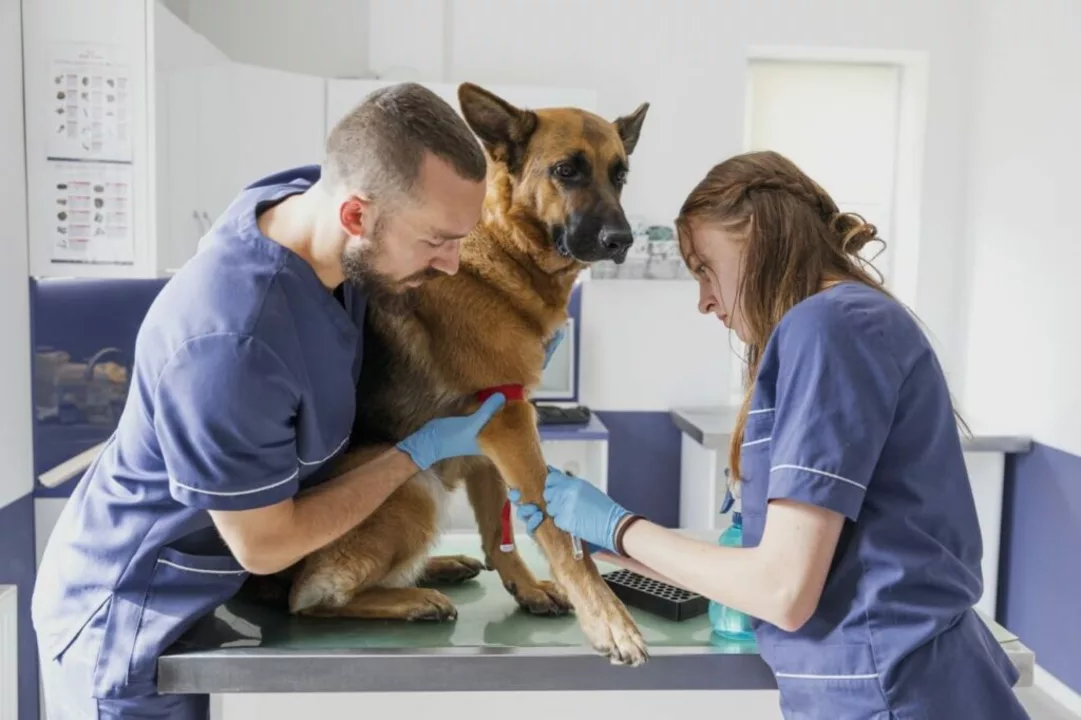Rifampin in Veterinary Medicine: Uses and Considerations for Pets

Introduction to Rifampin in Veterinary Medicine
In this article, we will be discussing Rifampin, a widely used antibiotic in veterinary medicine. As a pet owner, it is essential to understand the benefits and potential risks associated with this drug to ensure the wellbeing of our beloved pets. In the following sections, we will explore the various uses of Rifampin in veterinary medicine, the precautions that should be taken when administering it, and the potential side effects that may arise.
What is Rifampin and How Does it Work?
Rifampin is a potent antibiotic belonging to the rifamycin group of antimicrobial agents. It is primarily used to treat various bacterial infections in both humans and animals. Rifampin works by inhibiting the bacterial DNA-dependent RNA polymerase enzyme, which is essential for bacterial replication. By blocking this enzyme, Rifampin effectively halts the growth and multiplication of bacteria, allowing the immune system to eliminate the infection more easily.
Common Uses of Rifampin in Veterinary Medicine
Rifampin is a versatile antibiotic that has been successfully used to treat a wide range of bacterial infections in animals. Some of the most common uses of Rifampin in veterinary medicine include:
Treating Rhodococcus Equi Infections in Foals
Rhodococcus equi is a potentially life-threatening bacterial infection that primarily affects young foals. Rifampin, in combination with other antibiotics, has been proven to be an effective treatment option for this condition.
Managing Skin Infections in Dogs and Cats
Rifampin has been used to treat various skin infections in pets, such as those caused by Staphylococcus and Streptococcus bacteria. It is often prescribed in combination with other antibiotics to increase their effectiveness.
Combating Tuberculosis in Animals
Although rare, animals can also contract tuberculosis. Rifampin is one of the antibiotics used in the treatment of this serious and contagious disease.
Precautions and Considerations When Using Rifampin
While Rifampin is generally considered safe for use in animals, there are certain precautions that must be taken to ensure the wellbeing of our pets. Some of these considerations include:
Drug Interactions
Rifampin can interact with other medications, which may result in reduced effectiveness or increased risk of side effects. It is crucial to inform your veterinarian of any medications your pet is currently taking to avoid any potential complications.
Contraindications
Rifampin should not be used in animals with known hypersensitivity to rifamycin antibiotics. Additionally, it should be used with caution in pets with liver disease, as it is primarily metabolized in the liver.
Proper Dosage and Administration
It is essential to follow the prescribed dosage and administration guidelines provided by your veterinarian to ensure the safety and effectiveness of Rifampin. Incorrect dosing or administration may lead to treatment failure or an increased risk of side effects.
Potential Side Effects of Rifampin
As with any medication, Rifampin may cause side effects in some animals. While most side effects are mild and temporary, it is essential to monitor your pet closely for any signs of adverse reactions. Some of the most common side effects of Rifampin include:
Gastrointestinal Issues
Nausea, vomiting, and diarrhea are common side effects of Rifampin. Providing your pet with plenty of water and monitoring their condition closely can help alleviate these symptoms.
Reddish-Orange Discoloration of Body Fluids
Rifampin can cause a reddish-orange discoloration of urine, feces, saliva, and tears. While this is harmless, it can be alarming for pet owners who are unaware of this potential side effect.
Liver Toxicity
In rare cases, Rifampin can cause liver toxicity, leading to jaundice, lethargy, and loss of appetite. It is crucial to monitor your pet for any signs of liver issues and contact your veterinarian immediately if you notice any abnormalities.
Conclusion
Rifampin is a valuable antibiotic in veterinary medicine, offering effective treatment for various bacterial infections in animals. As pet owners, it is our responsibility to understand the uses, precautions, and potential side effects associated with this medication to ensure the health and wellbeing of our pets. Always consult with your veterinarian before administering any new medications and closely follow their guidance to provide the best possible care for your furry companions.

Diane Thompson
May 31, 2023 AT 04:15Helen Moravszky
May 31, 2023 AT 10:23Also the orange pee thing? So weird at first but you get used to it. My husband kept thinking the litter box was haunted.
Kayleigh Walton
June 1, 2023 AT 10:14And yes, the orange tears? Totally normal. My cat's eye boogers looked like they'd been dipped in Tropicana. I panicked for a full day before googling it.
Reginald Matthews
June 3, 2023 AT 01:31Sandridge Neal
June 3, 2023 AT 12:39Emily Duke
June 4, 2023 AT 02:19Mitch Baumann
June 5, 2023 AT 23:25But honestly? The orange bodily fluids? So... *vintage*. Like, 1970s vibes. I mean, who even *does* that anymore? 🤷♂️🌈
Stacey Whitaker
June 6, 2023 AT 03:57Debra Callaghan
June 6, 2023 AT 04:52Stephen Tolero
June 6, 2023 AT 18:26Gina Damiano
June 8, 2023 AT 01:35